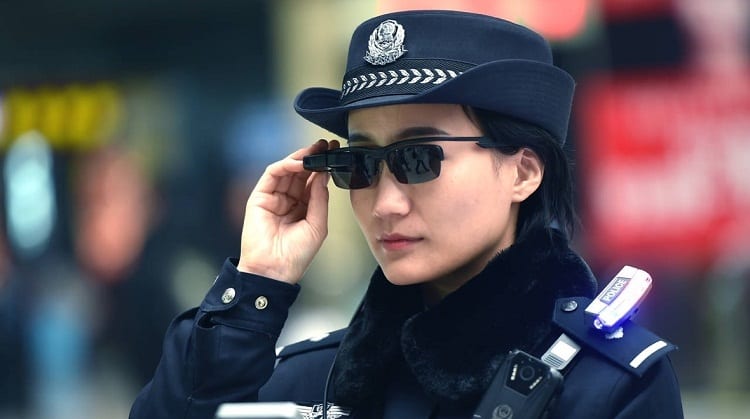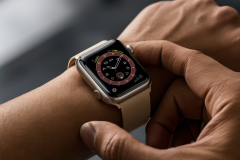China is no stranger to surveillance of its citizens and strict law enforcement. The Asian country is the world’s largest surveillance state with around 170 million CCTV cameras at work, which is estimated to reach 600 million by 2020. Now, a latest technological development in the country means the Chinese police have a new smart-weapon in their surveillance arsenal. Yes, police in China are now sporting smart-sunglasses equipped with facial recognition technology.
According to reports from local media, the Chinese police are currently testing the glasses at train stations in Zhengzhou. The glasses will be used to scan travellers in-and-out from major train stations and airports throughout the country during the upcoming Lunar New Year migration. Often described as the largest human migration event on Earth, the extremely busy holiday period in China sees a lot of people travelling across the country. Around 389 million train trips and 65 million air trips are expected to take place during this year’s Spring Festival. The glasses will assist the police with identifying criminals on the run or catching individuals who may be trying to avoid law enforcement or are travelling under false identities.
The Chinese police has reportedly nabbed seven suspects, wanted in major criminal cases, since the implementation of the technology in Zhengzhou only. The police is also reported to have captured 26 other individuals travelling under false identities.

Built by Beijing-based LLVision Technology, the smart-sunglasses can recognise individuals from a pre-loaded database of 10,000 suspects in around 100 milliseconds. Though CCTV cameras are prevalent in the country, blurry resolutions make it hard for facial recognition technology to be applied. With artificial intelligence (AI) powered sunglasses at the disposal, police now have the ability to scan for criminals anytime, anywhere, says LLVision CEO Wu Fei.
“By making wearable glasses, with AI on the front end, you get instant and accurate feedback. You can decide right away what the next interaction is going to be,” he said to the media.
Facial recognition equipped sunglasses are the latest component to arrive in the burgeoning Chinese state of tech-surveillance. The country is also reportedly working on building a facial recognition database that will contain info on all of its 1.4 billion citizens. Now, it remains to be seen how successful the latest technology proves out to be on the long run, though early results look promising.






















